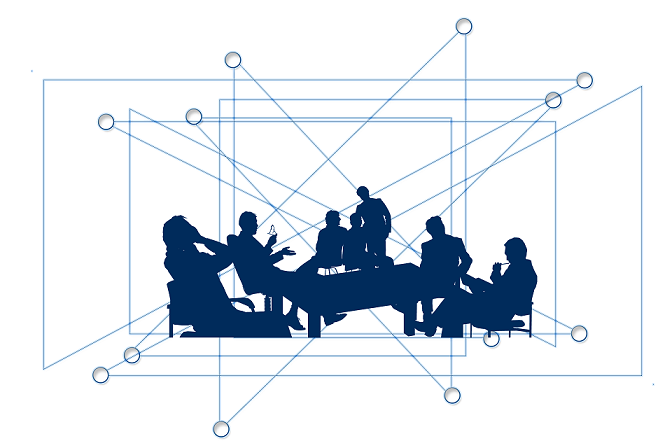– A scenario workshop with a focus on health and care for the elderly
Since the corona outbreak, digitalization has accelerated. People, business and society have become even more open and digital tools and virtual communication have taken a giant leap forward. Also, the journey to 6G will include and affect the entire society. There are many interesting research challenges ahead of us. How will this affect the future? What possibilities will it give in terms of healthy and sustainable societies and what are the challenges? With a focus on elderly care, this was the set-up when 30 experts and scientists, representing different parts of society, came together last week at one of many workshops hosted by Digital Futures.
“The fact that we have a growing elderly population is a success, now we need to handle it. Getting all these experts and scientists together to discuss these questions is crucial to driving digitalization in the health sector. One of the aims is to organize work in the elderly care in a better way”, says the moderator Britt Östlund, Digital Futures Associate Director Outreach and Professor in Technology in Health Care.
The starting point for the workshop was a model that can be used for long-term strategies – for companies, academia, the public sector etcetera. It shows how to, on an overall view, see what challenges there are. This scenario study, developed during the preparation for Digital Futures, outlines four future macro trends which would influence the development of technologies for tackling societal challenges. The macro trends are described as the dynamic Tiger or collaborative Dolphin, the slower Elephant scenario to the introspective Coala. Before the corona outbreak, the most likely scenario was the Dolphin, one with a continued fast and flourishing economy, global mobility and trade, considerations to transform to more sustainable systems and strong investments in research and innovation. With months of lockdown in many countries, the economic challenges are now enormous. That makes the Coala scenario most relevant. On the other hand, stronger support for digitalization has arisen as more people have had to develop new ways of working, caring, shopping and being social with others. How can that affect the digital development in the health sector in years to come? Do procurements need to be adapted to this development? How do we cover the need for competencies and digital leadership to create technology for more quality time for the care of the patients? Will there be higher demands on collaboration in the health sector? Do the laws need to be more proactive? How can we use the technology for inclusion and addressing socioeconomic gaps? These were some of the questions that were discussed during the workshop.
“This was the first of many workshops of this kind to set some research direction to the target, a great way to tie together scenarios and trends with fundamental research. This kind of discussions will continue in both digital and physical ways”, concludes Karl Henrik Johansson, Director of Digital Futures.
The speakers at the Round Table workshop were:
- Fredrik Lagergren and Erik Eriksson, SAM – introduction to the scenario study
- Karin Ekdahl Wästberg, Deputy Director of Innovation, City of Stockholm – ”Future care in Stockholm.”
- Britt Östlund, Professor in Technology in Health Care, KTH – “Who will populate the future?”
- Magnus Frodigh, VP, Head of Ericsson Research – “Technical outlook”.





